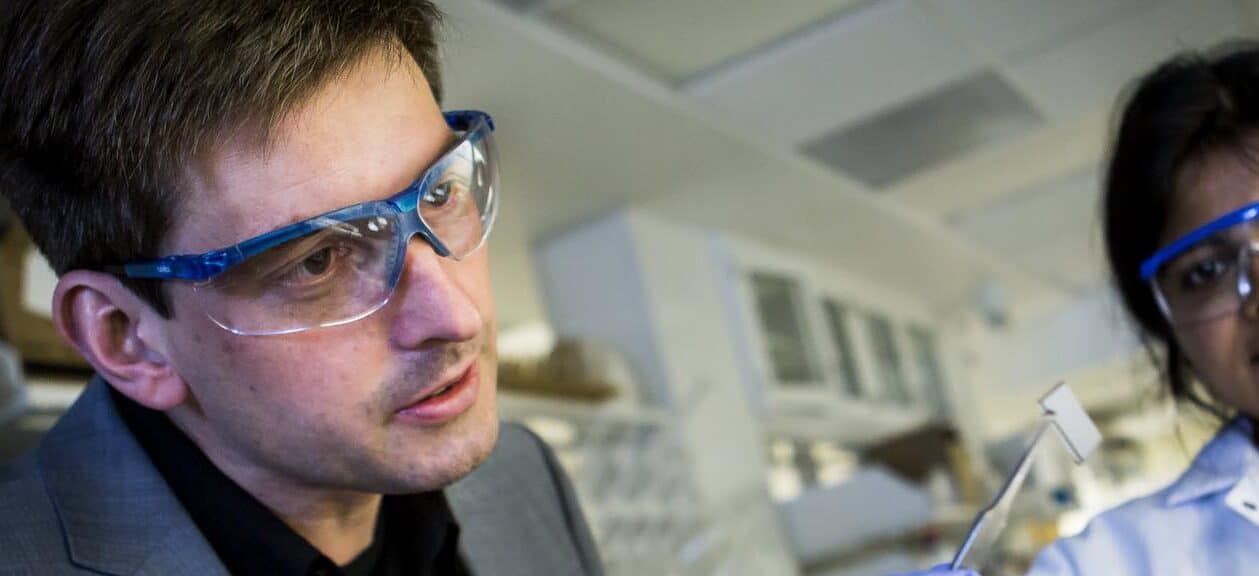
Joerg Lahann honored as AAAS Fellow
Joerg Lahann honored by AAAS for distinguished contributions to the field of polymeric materials engineering, including biointerfaces prepared using chemical vapor polymerization.

Joerg Lahann honored by AAAS for distinguished contributions to the field of polymeric materials engineering, including biointerfaces prepared using chemical vapor polymerization.
Wolfgang Pauli Collegiate Professor of Chemical Engineering, Joerg Lahann, has been honored as an American Association for the Advancement of Science (AAAS) fellow. The AAAS fellowship is one of the most distinct honors in the scientific community.
“I am humbled by this recognition, which wouldn’t have been possible without the smart and hard-working students that have joined my group over the years; as well as the truly distinct group of collaborators that I have had the privilege to work with,” Lahann said.
“I am humbled by this recognition, which wouldn’t have been possible without the smart and hard-working students that have joined my group over the years; as well as the truly distinct group of collaborators that I have had the privilege to work with.”
Joerg Lahann
Wolfgang Pauli Collegiate Professor of Chemical Engineering
Lahann joins the class of 2022 fellows for his distinguished contributions to the field of polymeric materials engineering, particularly related to biointerfaces prepared using chemical vapor polymerization.
The 2022 class includes 505 scientists, engineers and innovators spanning 24 scientific disciplines who are being recognized for their scientifically and socially distinguished achievements, including 16 other fellows from the University of Michigan. Among the 2022 fellows from the University of Michigan, Lahann is the only faculty member honored from the College of Engineering.
Joerg Lahann has been with the Department of Chemical Engineering since 2003. In 2019, he was named the Wolfgang Pauli Collegiate Professor of Chemical Engineering and is currently the director of the U-M Biointerfaces Institute and holds professor appointments in the Biomedical Engineering, Macromolecular Science and Engineering, and Materials Science and Engineering departments.
Lahann has 24 US patents to his name as well as a National Science Foundation (NSF) CAREER Award. His research broadly focuses on surface engineering, with recent endeavors including synthetic protein nanoparticles for non-viral gene therapy and a novel class of vapor-based polymers. In 2022, Lahann received $2.38 million in funding from the National Institutes of Health to test nano-engineered brain cancer treatment in mice.
The AAAS aims to advance science, engineering and innovation throughout the world for the benefit of all. AAAS, founded in 1848, is the world’s largest general scientific society and includes more than 250 affiliated societies and academies of science, serving 10 million individuals.